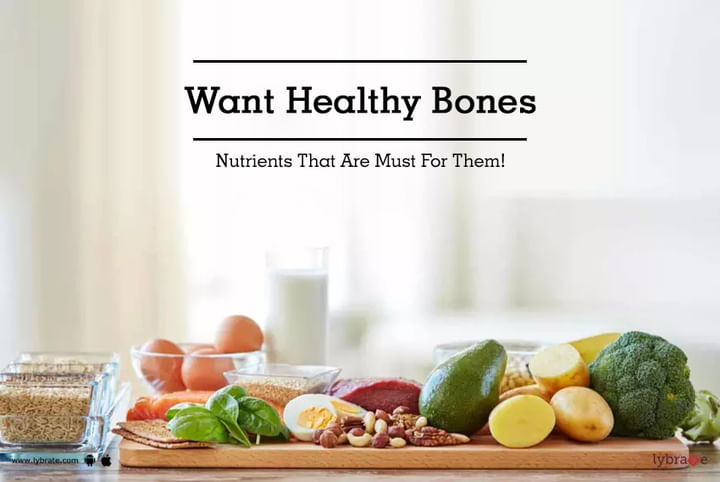Get the App
For Doctors
Login/Sign-up
Last Updated: Dec 20, 2019
BookMark
Report
Want Healthy Bones - Nutrients That Are Must For Them!
Dr. Deepa AgarwalDietitian/Nutritionist • 16 Years Exp.Phd In Clinical Nutrition, M.Sc - Clinical Nutrition
Bones are very essential for our overall health and movement. Though formed early in life, they constantly require adequate nutrition to manage routine wear and tear. If not done, there could be degeneration of the bone (either rapid onset or progress), which can lead to multiple changes such as limited movement, painful movement and a stooped posture.
A good balanced diet is essential for overall health, but bone health is primarily dependent on two important substances – Vitamin D and calcium.
- Calcium: This is the most important mineral in the maintenance of strong bones and teeth. Diet is the only source of calcium, and if the body does not receive adequate amounts of it, what is stored in the bones is removed, making the bones fragile and brittle and porous. This condition is known as osteoporosis. Calcium requirements differ across age and gender, and the following food items are rich sources of calcium:
- Vitamin D: More than calcium, the body requires vitamin D, without which calcium cannot be absorbed into the blood stream. Vitamin D is present in the gut. It is responsible for absorption of calcium and maintains serum calcium and phosphorus levels. Vitamin D is again received through a combination of sun and diet. Common sources of vitamin D include:
- Fatty fish such as tuna, salmon and mackerel
- Dairy products like cheese and milk
- Fortified products including beverages and dairy products
- Mushrooms, cereals, etc.
- Unlike calcium, Vitamin D can be produced in the system naturally when the body is exposed to sunlight. However, in people who do not receive adequate sun, supplements are also useful.
- Others: Though Vitamin D and calcium are the main components, the following are equally important for bone health.
- Phosphorus: As part of bone crystals, it is found in meat and dairy products. Phosphorus absorption is better if there is adequate vitamin D.
- Magnesium: This is responsible for bone strength. Older people may need magnesium supplements.
- Vitamin A: It is essential for normal skeletal growth and is found in liver, butter, eggs, carrots, and green leafy vegetables.
- Vitamin C: It is present in citrus fruits, tomatoes, etc. and is necessary for collagen synthesis.
Tips for maintaining optimal bone health:
- Have plenty of dairy products and soft fish.
- Reduce intake of acidic foods.
- Improve alkaline food intake.
- Increase intake of antioxidants and lycopene-rich foods.
- Moderate alcohol content.
- Reduce caffeine, soda, and sodium.
- Ensure optimal weight management so there is no added pressure on the knees and ankles.
- Maintain optimal levels of physical activity to ensure mobility.



+1.svg)
